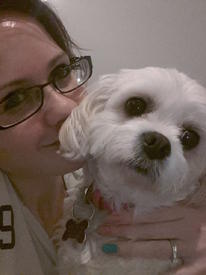Replies
-
^That's not right either though because my Bmr is about 50 calories an hour which means fitbit reading should have been about 210 odd
-
Nope, I was only comparing calories burned on the walk. As I said, adjusted fitbit calories before walk = 70. After walk = 440. Means it think I burnt 370 on the hour walk.
-
Nope, I synced it immediately before my walk and then again afterwards
-
Thanks, so why has the fitbit given such a ridiculous number? I don't expect it to be 100% accurate but I hope it to be close so I know what calories to eat back when I surpass "sedentary" throughout the day :l
-
^ Yes.
-
Exactly, weight gain doesn't have to be permanent. Do something about it.
-
I'm thinking about it. I'd love to do it except the electric shock thingys really scare me off... Same with the really tight but long tunnels.... Ahhh I dunno!
-
http://forum.bodybuilding.com/showthread.php?t=121703981
-
Boobs are made up of both fat and breast tissue. Everyone has a different mix. If most of them are actually breast tissue, they won't shrink when you lose weight, but if they're made up of fat, then of course they will, it's inevitable. Most people of course have both fat and breast tissue so will experience a little…
-
:P
-
Yeah I agree with you there. I meant excess protein while on a calorie deficit won't turn into fat.
-
Fat gain is from a calorie surplus, not necessarily lack of exercise. The calorie surplus doesn't matter if the calories are from protein, fat, carbs or whatever
-
I agree with you there. But aren't weight lifters and exercisers wanting to aim for optimal muscle growth and repair? If not that kind of defeats the purpose of lifting etc.
-
Ok so maybe for an average person that isn't actively trying to lose weight or grow muscle. The RDS is for the average person. People weight lifting etc need MORE protein.
-
This.
-
It does vary though depending on your goals which the article I posted goes through.
-
Per pound of WHAT exactly? Because minimum is about 1 gram per pound of LBM and the higher end of scale is 1 pound per gram of BW. You saying half a gram to point 7 per pound doesn't mean anything unless you specify what the pound is actually of.
-
I'm sorry but the body does not give two hoots what "percentage" the body gets of this or that. It comes down to QUANITY of each macro.
-
Way to go!!
-
Ah I see what you did there.... The "domino effect" logic... Well then, sodium definitely causes fat gain! /sarcasm -.-
-
What? No! Are you trolling right now? Excessive sodium causes high blood pressure and fluid retention.... Short term "weight" gain which is most likely water, but not FAT. Fat is caused by a calorie surplus.
-
It's simple. You need to bring your overall body fat percentage down as you can't spot reduce. 1) create a calorie deficit (burning more than you consume) 2) do this by a mix of cutting down what you eat, plus cardio and weight lifting 3) eat healthy, nourishing foods plus plenty of protein. 4) drink lots and lots of…
-
I'm from Australia! Orange NSW... (3.5 hours from Sydney... Pretty rural!)
-
I posted a link to an article that explains the maths to do your own calculations. MFP grossly underestimates protein needs.
-
This is WRONG WRONG WRONG. excess protein does NOT turn into fat.
-
I hope you're not going by MFPs calculations... You need to do your own
-
Too much protein is only bad if you have EXISTING kidney problems
-
Here is a very informative post on all of that plus lots more. http://forum.bodybuilding.com/showthread.php?t=121703981
-
MFP grossly underestimates protein goals. It should be ROUGHLY a gram of protein per pound of body weight (or a gram per pound of lean mass) Besides, there's no harm getting extra. What curbs weight loss is taking in more calories than you burn. So if you're not doing that, then you're fine.
-
http://www.myfitnesspal.com/topics/show/954064-anyone-looking-for-a-protein-powder-this-is-it
